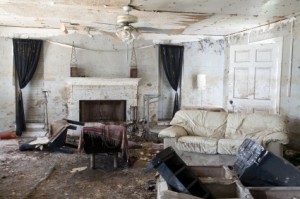The last few years have seen explosive growth in illegal subletting, with the main driver being the increasingly mainstream adoption of short term rental sites like airbnb.com. Airbnb and its ilk, while disrupting the entire hotel industry, are also impacting hosts (people that rent or sublet their home through the rental sites), their guests, other tenants in the building, property managers, and, in some cases, even entire cities – cities where housing crises are made more acute with housing stock taken off the market and converted into unregulated hotels.

And, with Airbnb and others still growing an estimated 50% year-over-year, it’s going to get worse before it gets better.
As a property manager you might have two questions: “How does Airbnb affect me?” and “What can I do about it?” I’ll save the latter question for another post, and will focus on the former. After all, as they say in every twelve-step step program, the first step is admitting that you have a problem.
It’s hard to overstate how big of a problem illegal subletting is in urban centers like New York, San Francisco, Chicago, Boston, DC, and Los Angeles. Just a few days ago, Airbnb itself released data showing that 17% of their revenue in San Francisco came from hosts with more than one listing. In San Francisco, having more than one listing on Airbnb is not just against the terms of a rental agreement, but is straight up illegal. Many investigative journalism pieces, such as this one by FastCompany, detail how lucrative it is for shady entrepreneurs to rent out apartments by the dozen and turn them into de-facto hotels. And I can tell you first hand that at SubletAlert, we’ve helped many property management companies, from San Francisco, LA, Seattle, and San Diego in the west, to New York, Boston, Miami, and DC in the east, flag down and resolve illegal sublets.

Safety is the first reason you should care about all this. If your tenants are subletting on Airbnb, it means your building has strangers coming and going all the time. There is no background check and no record of these guests. To make matters worse, your tenant gives their guests building and apartment keys, which can easily be copied. I heard a story of an Airbnb “guest” who made a copy of a mid-rise building garage key, only to return a couple weeks later to steal an expensive European vehicle in the garage. Once, a host in NYC had his entire unit destroyed by Airbnb guests who decided to throw an out-of-control sex orgy at his home. There are many such horror stories, but the bottom line is if one of your units is listed on Airbnb, it’s a safety hazard to you and your tenants.

If that’s not enough, consider that once one of your units is turned into a short term rental, it will be subject to additional wear and tear, even though you won’t be compensated for any incremental use. It’s just common sense. There will be more people using the space and the appliances, who will care less about the upkeep than someone who lives there permanently.
The third reason you should care about illegal sublets is insurance. The insurance policy you have that covers your building wasn’t designed with sites like Airbnb in mind. That’s why the premiums are what they are. If your property is subject to illegal subletting through sites like Airbnb, that, in some cases, can be enough of a reason for your insurance company to drop your policy or to even dispute an otherwise legitimate claim.
I hope this post shows how risky it is to not take illegal subletting activity seriously. In a future post, I will go over how to keep Airbnb and others under control. In the meantime, if you’re interested in learning more about Sublet Alert, a professional solution for Airbnb monitoring, feel free to send me an email at david@subletalert.com. Here’s to happy tenants who abide by the terms of their lease and pay rent on time!
